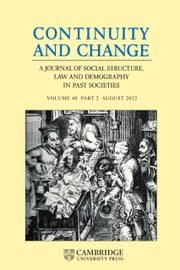Article contents
Causes of disease and causes of death
Published online by Cambridge University Press: 01 August 1997
Abstract
In early-nineteenth-century medical literature, one finds an elegant symmetry between causes of disease and causes of death: both were sufficient causes of particular events. However, as I will argue, by the end of the century physicians no longer sought sufficient causes of individual disease episodes – instead almost all of medical research was organized around the quest for necessary causes that were shared by all the episodes of each particular disease. Such causes carried great practical and theoretical advantages: they enabled physicians to control and to explain disease phenomena.
One might wonder why there has been no parallel change in our thinking about causes of death; to this very day, causes of death are sufficient causes of particular events. In principle there is no apparent reason why we could not identify necessary causes for classes of deaths – indeed, we sometimes do so. But, in the case of death, such causes hold little interest. Because of how they are used, sufficient causes for individual deaths are more interesting and more important to us than are necessary causes of deaths. Thus, the change in thinking about causes of disease – the change that destroyed the symmetry between causes of disease and causes of death – may not reflect simply progress within a fixed system of medical goals and values, but a profound change in the social role of physicians.
- Type
- Research Article
- Information
- Copyright
- © 1997 Cambridge University Press
- 5
- Cited by


